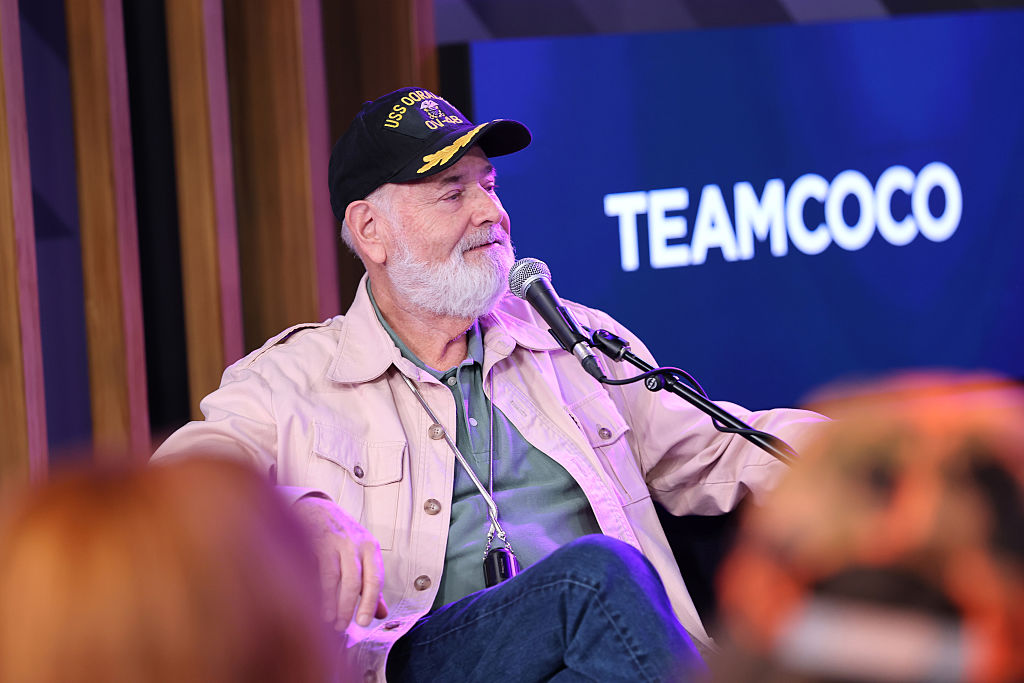To win the Republican nomination, you have to knock out Donald Trump. That’s no easy task — polls currently show him leading by over thirty points among Republican voters. But the task is even harder because anyone who defeats Trump must win over his supporters to win the general election. That is Ron DeSantis’s double challenge: beating Trump without alienating his voters.
Trump will make both tasks as hard as possible. He is not just the least graceful loser in modern American history, he has retired the trophy. (Elon Musk retired the trophy for worst media rollout of a live presidential event. Unfortunately for DeSantis, it was his grand announcement.)
Why do Trump’s primary opponents fear his wrath? Because his vitriol sways his followers, and he still has a lot of them. Republicans running for president know that Trump stands between them and the nomination. They know, too, that Trump’s political career has been focused on his opponents’ defects, not his own accomplishments. He will do everything he can to smear his opponents, whatever their party.
This rhetoric rallies the base but holds little appeal for independents, who are crucial to winning the general election. But to get to the general election, you have to get past the giant orange roadblock. The first step is to become the leading alternative to Trump. Right now, that’s Florida’s successful governor, Ron DeSantis, so it’s worth looking closely at his strengths and weaknesses.
DeSantis’s strengths are formidable, beginning with his electoral victories and effectiveness in office. His political success is straightforward. He turned a purple state into a solid red one, winning a massive reelection victory and carrying a supermajority into the state house.
His policies are a mixture of traditional conservative and Trumpian populist measures. That program overlaps with the former president’s but differs in two crucial ways. First, DeSantis managed to pass his priorities into law, thanks to his success with down-ballot candidates. Primary voters will note that he didn’t compromise to win those victories, either. Second, DeSantis took hold of state agencies and got them to implement his policies, not obstruct or delay them. He governed.
Beyond those overarching achievements, DeSantis has a long list of specific accomplishments to run on.
Economic growth tops the list. Under DeSantis, Florida has become is the national poster child for economic growth, business formation, and in-migration from high-tax, high-regulation states like New York, New Jersey, Connecticut, Pennsylvania and Illinois, all governed by Democrats. While Florida ranks top for inward migration, Gavin Newsom’s California wins the U-Haul Prize for outward migration.
Also high on the list is his pandemic success. DeSantis kept Florida schools and businesses open during most the pandemic. Other states shut down, under strong pressure from the federal bureaucracy and iron-fisted “guidance” from the CDC. Florida resisted and proved right. As the governor will remind voters, the bureaucracies that shut them down their lives were part of the Executive Branch, and that branch was led by Donald Trump during the darkest days of Covid.
DeSantis won’t have any trouble getting his message out. He can raise a ton of campaign money, thanks to his success in Florida and his lead position as Trump’s opponent. He won’t have any trouble convincing Republican primary voters he is tough as nails and ready to go up against powerful, entrenched interests. His slogan, “Never back down,” says it, and his fight against Disney backs it up.
DeSantis can also credibly claim he represents a new generation of Republican leaders. That’s not because he looks decades younger than Trump and a millennium younger than Biden. It’s also DeSantis’s agenda. His program is all about the country’s next steps forward, an attribute he shares with every Republican candidate except one.
In the general election, DeSantis has a chance at winning at least some educated, independent voters. Trump has no chance at all. Granted, DeSantis won’t be as attractive to those moderates and independents as Nikki Haley, Chris Sununu, Asa Hutchinson, Tim Scott or Glenn Youngkin, if he gets in. But, for now, they are so far behind the two leaders they can’t even smell the exhaust fumes.
The bottom line is that DeSantis gives Republicans a real chance to win in 2024. That means more than recapturing the White House. It means long coattails to carry the House and Senate, followed by gaining control of the administrative state to carry out his policies.
DeSantis’s success implementing his agenda in Florida offers a strong contrast to Trump, who could not get legislation through Congress or get truculent bureaucracies to fulfill his executive orders. DeSantis will need to highlight that contrast for primary voters.
Trump’s bureaucratic failure can be summed up in a single word: “Fauci.” If you want two words, try “Christopher Wray” or “border wall,” which was much promised but hardly built. He appointed Wray (the slot was open after Trump belatedly fired James Comey) and he could have replaced Fauci but didn’t. Instead, he made him point man for Covid policy. His main successes, and they were important, were a growing economy and shrinking illegal immigration.
As for Trump’s legislative failures, mark them down to his failure to help his party win general elections. He backed primary candidates who promised personal fealty but couldn’t win in November; his name tainted all Republicans in swing states; and he ultimately cost the party down-ballot majorities in 2018, 2020 and 2022. Today’s Republican office holders know just how bad he was for the ticket—and still is. Republicans in purple states know their seats are in jeopardy if Trump is the nominee.
Trump’s response to these failures is denial (“they stole the election”) and revenge. DeSantis’s only hope is that Republicans are tired of that routine and ready to move on. He will offer them a forward-looking program without any whiff of “moderate compromise,” which would repel today’s Republican base. Trump forged that base. The questions now are how many Republicans remain in that pro-Trump base? How many are looking for another candidate. And who can win them over?
To win those votes, DeSantis has to overcome some serious limitations. Some are personal. Some are political and will hurt him either in the primaries or the general election. The personal weakness is that he conveys roughly the same charm and personal warmth as Richard Nixon. He is a warrior, yes, but not a happy one like Tim Scott or Ronald Reagan. He’s no glad hander. He has to be told to mix with people at large events or even small ones, packed with enthusiastic donors. His speeches are strong on policy, weak on cheerleading the crowd. They are blunt, tough, and practical. So far, he has shown none of Trump’s ability to rouse large crowds. DeSantis wins, as some great football teams do, with blocking and tackling, not broken-field running.
His immediate — and obvious — problem in the primaries is consolidating the anti-Trump vote. The more candidates in the race, the harder the task. Trump will try to keep them all in. If other primary candidates capture dribs and drabs of the primary vote, DeSantis will lose. That’s because Trump has a solid voter base. That base need not top 50 percent, as it currently does in Republican polls. A plurality is enough to capture all the convention delegates in some seventeen states, which hold “winner take all Republican primaries.” If other candidates peel off a percentage point or two each and stay in the race, DeSantis could lose to Trump’s base voters. Trump’s challenge, by contrast, is retaining those base voters and fueling their turnout. His secondary challenge is keeping other candidates in the race, preventing anti-Trump Republicans from consolidating around DeSantis. That’s why Trump will concentrate all his firepower on the Florida governor and hold off attacking the others.
If DeSantis does win the nomination, some of his strengths in the primaries become obstacles in the general. The biggest is his embrace of high-profile, social-conservative policies, which Democrats will attack relentlessly to win independent voters. The largest target will be Florida’s new law limiting abortions to six weeks, replacing the fifteen-week limit passed after the Supreme Court’s Dobbs decision. The longer time limit is much closer to a national consensus and much easier to defend in the general election. (But, you ask, isn’t it equally difficult for Democrats to defend on-demand abortion for the full nine months? No, because they don’t have to. The corporate media never presses the issue. Think of it as one of their many, generous in-kind donations to Democrats at every election. Last time around, they buried Hunter’s laptop, while old CIA guys gave Joe cover.)
Democrats will also attack DeSantis over “Don’t Say Gay” and “book banning,” depicting him as Torquemada. Once again, the legacy media and progressive bloggers will join the Hallelujah Chorus. The question is whether DeSantis can counter those attacks without turning his campaign into a defensive crouch. You don’t win on defense. DeSantis’s positive response has to be “we want parents to raise their children, not teachers and social workers. In Florida, we believe parents should not have to fight some woke teachers pushing inappropriate sex ed on six year olds. We’re gonna help parents and kids win that fight. And we want parents to choose the best schools for their kids. We’re gonna help them in that fight, too. That’s why we just passed a very ambitious school-choice program, expanding the choices we had already made available.” On attack, he’ll present the Democrats and Teachers Unions as Siamese Twins — and dare them to find an issue on which they differ. It will be easier to find Jimmy Hoffa’s body or a happy Bud Light distributor.
DeSantis could win the White House with this program. So could other Republicans, who represent a rising generation of successful elected officials. But they won’t have a chance unless they can get past a giant, orange roadblock.

























